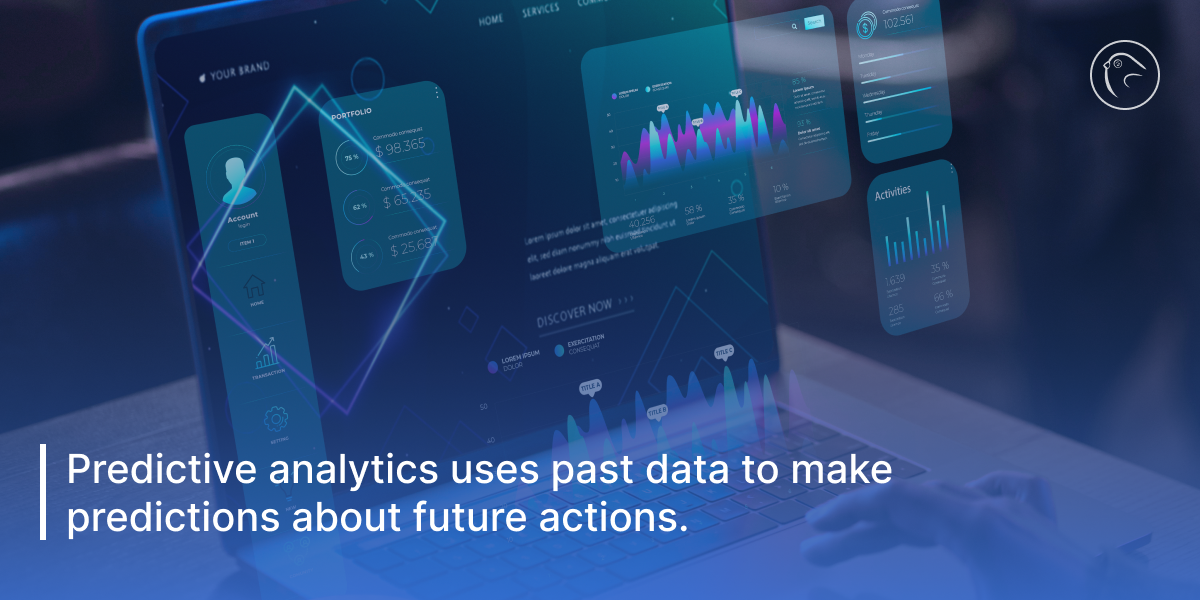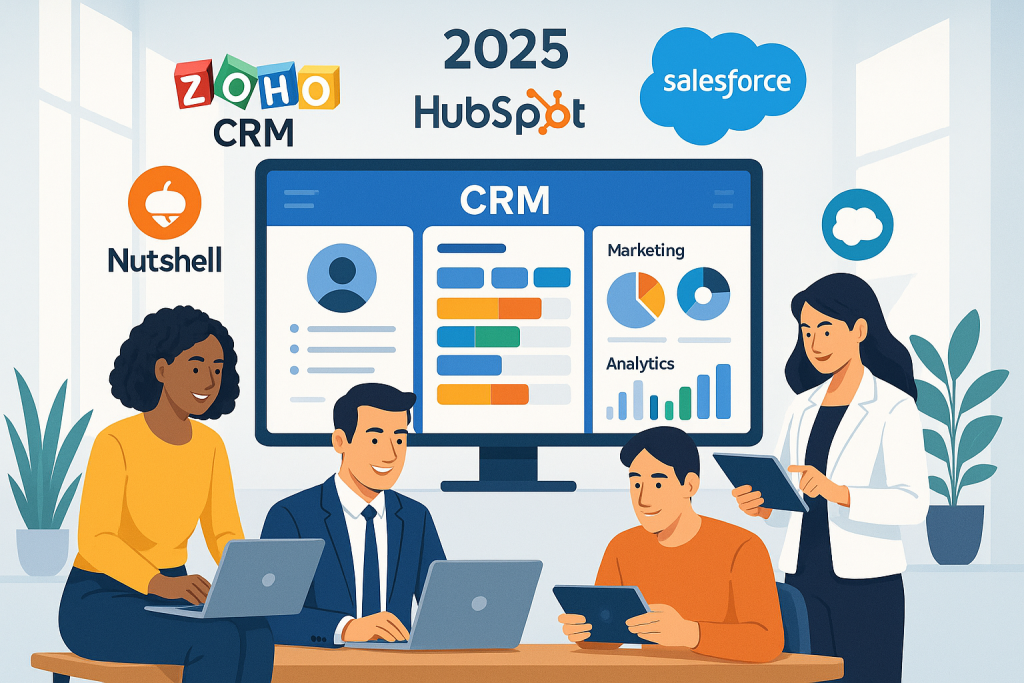E-commerce is no longer a new concept. It has firmly entered our daily lives. The industry has reached $6 billion in 2024. However, with over 2.7 billion online shoppers worldwide and fierce competition, businesses are under serious pressure to get noticed. Consumers tend to purchase from brands that offer relevant recommendations. They expect individual offers and content that is meant only for them. So, personalization is inevitable for successful e-commerce operations.
In recent years, progress in machine learning and predictive analytics has changed the way businesses sell to individuals. These technologies allow e-commerce companies to gain valuable information about customer behavior, preferences, and needs. With this data, online stores can drive customer satisfaction and loyalty. How exactly can you use machine learning and predictive analytics in e-commerce personalization? Let’s explore it and uncover specific strategies offered by Kozak Group to create a unique shopping experience for your customers.
Personalization in E-commerce – Why It Matters
Personalization in e-commerce makes shopping easier and more enjoyable for customers. It also helps businesses grow.
- Higher sales. Showing products that match a customer’s preferences or past purchases can boost conversion rates significantly. It feels like the store “gets” them, which encourages purchases.
- Loyal customers. When customers feel understood, they’re more likely to return. In fact, businesses that personalize well see a 50% increase in repeat buyers.
- More spending. Personalized recommendations often lead to higher average order values. Customers are more open to buying related items they didn’t know they needed.
- Smarter decisions. The analysis of customer behavior allows online stores to improve marketing and inventory planning. For example, you can focus on promoting items people actually want.
- Differentiation from competitors. With so many online stores, personalization helps you offer a unique shopping experience and stay ahead of competitors.
Predictive analytics and machine learning make personalization more precise. These technologies analyze browsing history and purchase patterns and predict what a customer wants before they know it themselves. This creates dynamic, real-time recommendations and boost overall shopping satisfaction.
The Power of Predictive Analytics in E-commerce
Predictive analytics uses past data to make predictions about future actions. It helps businesses understand customer behavior. It looks at trends, purchases, and patterns to forecast what customers will likely do next. Here’s how it works:
- Targeted recommendations. The analysis of past purchases and browsing history shows what a customer is most likely to buy.
- Customer segmentation. It groups customers based on their preferences and actions. This helps businesses target each group with individual messages.
- Better inventory management. Predictive models help businesses understand which products will be in demand, allowing them to stock up accordingly.
For instance, platforms like Amazon use predictive analytics to suggest products tailored to individual customers, boosting sales by 20%.
Machine Learning for Personalization in E-commerce
Machine learning (ML) strengthens e-commerce personalization by learning from customer data and adapting to changes in real time. It analyzes large amounts of data and finds patterns that allow businesses to adjust their approach to customers without manual effort. Here are the most popular ML solutions for s e-commerce:
- Real-time recommendations. As customers browse, ML algorithms learn about their preferences and suggest products based on that data.
- Customized content. ML helps personalize everything from website pages to email campaigns.
- Improved search results. Machine learning flawlessly understands the context and intent behind a customer’s query and refines search results accordingly.
In e-commerce, companies like eBay use ML to recommend products that match customer preferences. This approach increases customer loyalty and drives sales.
Our Personalized Services for E-commerce
At Kozak Group, we know how critical the level of customer experience is for an online store. So, we offer highly practical and actionable solutions for e-commerce businesses.
AI-Based Product Recommendations
How it works. Machine learning analyzes customer behavior in your store. It includes past purchases, browsing history, and even the time spent on specific product pages. It allows the system to predict what customers may like and proactively suggest products they’re likely to purchase next. These recommendations get more accurate over time as the algorithm gathers more data.
Practical solution. For a retail store, this mechanism could suggest complementary items based on whatcustomers already have in their shopping carts. We can integrate this into Shopify or Magento platforms for a seamless customer experience.
Best for: any online retail store.
Predictive Analytics for Customer Insights
How it works. Predictive analytics helps online store owners to forecast what products will be in demand when customers are most likely to buy, and when they may return for repeat purchases. The mechanism processes data from multiple sources like transaction history and browsing activity.
Practical solution. A store can predict when customers will run out of regular items theybuy most often and send personalized reminders to refill stock levels. We implement predictive models into your customer relationship management (CRM) software to simplify stock control.
Best for: Grocery, subscription-based services, and health and wellness industries.
Dynamic Pricing Models
How it works. Dynamic pricing uses AI and real-time data to adjust prices based on factors critical for the business. These can include customer demand, market conditions, competitor pricing, and even inventory levels. It constantly monitors external conditions and adapts prices accordingly. This approach allows businesses to stay competitive but still keep profitability.
Practical solution. A travel or ticketing website could automatically adjust ticket prices for events or flights depending on the time of day, availability, and demand. We can integrate such pricing mechanisms into yourstore’s system based on your critical price parameters.
Best for: Travel, event ticketing, seasonal goods, and services.
Personalized Email Campaigns
How it works. Email automation tools use customer data, for example, past purchases or abandoned cart behavior, to send customized messages. This can include product recommendations, special offers, or personalized discounts. These emails are sent at the right time based on the customer’s engagement history and increase conversions.
Practical solution. An online store could send personalized recommendations to a customer based on the items they’ve previously purchased. We create solutions that help you segment customers and trigger automated, personalized email flows.
Best for: All sorts of online stores and subscription services.
Chatbots with Human-Like Interactions
How it works. Chatbots use AI to communicate with customers in real time, answer questions, suggest products, and process orders. Chatbots also use customer data to personalize interactions. They can understand natural languageand feel more personal than a traditional FAQ.
Practical solution. A customer browsing a tech product website can ask the chatbot about the features of a specific device. We can create bots that can pull up detailed specifications for a particular product and provide customers with all the nuances they may want to know.
Best for: Electronics, furniture, and high-ticket items.
Intelligent Search Functionality
How it works. Advanced search engines integrated into e-commerce platforms now support voice search, image recognition, and typo correction. AI helps search systems understand user requests and offer the most relevant results, even if the user’s search term is slightly misspelled or incomplete. The system can also display products based on visual similarity or specific attributes, making it easier for customers to find exactly what they need.
Practical solution. We offer high-quality search engines for online stores. A customer searching for a specific product in a store could see an immediate list of products that match or resemble that description.
Best for: Home décor and fashion industry, gadgets, and automotive.
Custom Landing Pages
How it works. Landing pages can be personalized based on customer data and behaviors. New visitors see different content than returning ones, or users who viewed certain products may be directed to a page that highlights related things. This creates an individual experience that feels unique to the shopper.
Practical solution. We create landing pages that are easily customized based on an audience segment. If a customer recently browsed specific camping gear on the website, they could land on a page showcasing tents, backpacks, and other outdoor essentials.
Best for: Apparel, sports & outdoor, and beauty industries.
Loyalty Programs Powered by Data
How it works. Modern loyalty programs collect customer data to offer highly personalized rewards. With customer details, businesses can offer loyalty incentives to everyone. AI algorithms can identify patterns in customer spending and offer discounts on preferred items, early access to sales, or free shipping on future orders. These programs greatly increase repeat purchases and also strengthen brand loyalty.
Practical solution. We integrate special loyalty programs into your store. The system will automatically send personalized offers to your customers based on their preferences.
Best for: Beauty, grocery, and lifestyle stores, as well as businesses in subscription-based models.
Fraud Detection Systems
How it works. Fraud detection systems use machine learning to analyze purchasing patterns and detect unusual activities in real time, reducing the risk of chargebacks and fraud. These systems assess a variety of factors, such as user behavior, IP addresses, payment methods, and purchase histories, to flag suspicious transactions. Fraud detection systems can prevent financial losses and still maintain a high level of user experience.
Practical solution. We implement AI-powered fraud detection systems that monitor high-ticket purchases from unfamiliar locations or multiple failed payment attempts.
Best for: High-ticket items, electronics, luxury goods, and online marketplaces.
Challenges and Considerations of Personalization in E-commerce and How We Solve These
Personalizing the shopping experience brings benefits but also challenges. Here are the most common issues and how our team tackles them:
Data Privacy and Compliance
- Problem. Customers want personalization but need their data kept secure. Misusing or mishandling data can result in legal issues and lost trust.
- Solution. We ensure full compliance with privacy laws like GDPR. Our approach includes secure data handling, clear privacy policies, and regular audits to keep data safe.
Bad Data Quality
- Problem. Personalization depends on accurate customer data. If the data is incorrect, it leads to wrong product suggestions and unhappy customers.
- Solution. We offer mechanisms that gather correct, relevant customer data at all stages of interaction and regularly clean and update it to ensure it’s accurate.
Over-Personalization
- Problem. Too much personalization can overwhelm customers and make them feel uncomfortable.
- Solution. We keep a balanced level of personalization. We also provide solutions that give customers control over how much they share so they don’t feel pressed.
Integration Challenges
- Problem. Adding advanced tools like machine learning or analytics can be tough if they don’t work well with your existing systems.
- Solution. We promise smooth integration with current systems so everything works seamlessly without disrupting your operations.
Scaling Issues
- Problem. As your business grows, personalization tools need to handle more customers without slowing down.
- Solution. We use scalable solutions, such as cloud-based systems, that grow with your business to ensure smooth, fast personalization as you expand.
These practices allow us to avoid common pitfalls and help businesses offer great, personalized shopping experiences that customers will love.
Wrapping up
Predictive analytics and machine learning are enhancing personalization and transforming e-commerce. At Kozak Group, we excel in implementing cutting-edge AI solutions for a personalized shopping experience. We have mechanisms for each industry and store, from dynamic pricing models to personalized email campaigns. Do you feel your store can perform better? Contact us for a consultation. We will find an optimal solution that will help you attract customers and drive sales.








